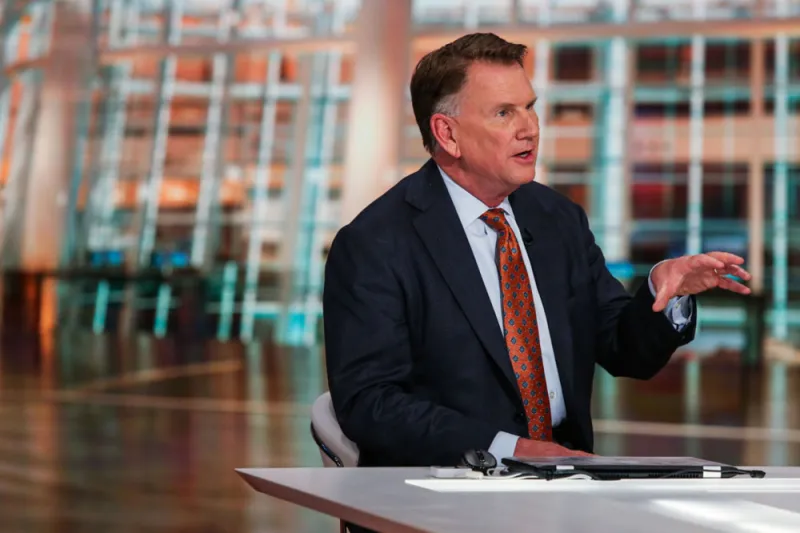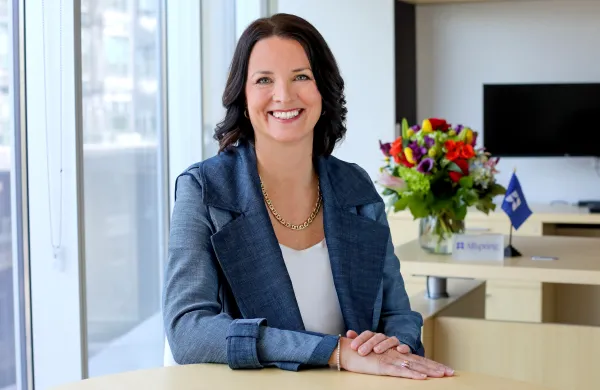Wells Fargo Asset Management, now known as Allspring Global Investments, is officially free of its bank parent and is now an independent asset manager with almost $600 billion in assets.
Private equity firms Reverence Capital Partners and GTCR have closed the deal to acquire the asset manager from Wells Fargo & Co., which is keeping a 9.9 percent equity stake and will continue to distribute investments from Allspring Global. Reverence and GTCR announced the deal in February. The two private equity firms will own the majority, with Allspring management, portfolio managers, and employees also owning a significant interest.
“We have a lot of the core pieces and the foundation for success,” said Joseph Sullivan, executive chairman and CEO. “We also have a lot of work to do, and we know that and we’re sober about that. This is a great time to be launching as an independent, pure-play new business, at scale. We think of this as an opportunity to kind of be a start-up, but at scale. We get to reinvent and rearchitect the business as [it] makes sense [to us].”
In particular, Allspring’s new owners are planning to invest in the manager’s technology platform, the distribution network for wealthy clients, and the firm’s global footprint.
But Sullivan, who is the former chairman and CEO of Legg Mason, stressed that the private equity firms don’t have specific targets that Allspring needs to meet in terms of assets under management or other key benchmarks. “A lot of people say, ‘Oh, what have the PE guys given you for growth targets?’ and I said none. Because growth is an outcome of providing great investment results. If we do that, growth will take care of itself,” he said.
One of Allspring’s priorities will be investment solutions, a word that Sullivan said is overused but still a critical concept. “If our clients believe that we are developing solutions that are customized for them — and again, that customization can be something we do as a strategy, and if it just happens to fulfill their need, that’s great — but if it needs to be different or uniquely tailored, we need to be prepared to do that, as well.”
Sullivan said that in his opinion, the biggest challenge facing the industry is differentiation. “The reality is that there is significant excess capacity in the industry,” he explained. “As much as we are proud of our strong investment performance, other firms have [also turned in] strong investment performances. So how does a client distinguish you? I think this goes back to using all the resources you have at your disposal.”
Ann Miletti, head of active equity, said that despite consistently beating benchmarks over long time periods, the firm was hidden in a big bank and is not as well known as it now can be.
One of the firm’s strengths, she added, is the independence of each investment team. But at the same time, Allspring provides centralized services, such as risk management, that PMs can’t get on their own. Miletti explained that Allspring’s investment risk team is separated from the investment team, but that the two groups still work hand in hand with each other to provide a lot of top-down analysis.
“Our fundamental active teams think about building from the bottom up, and their own investment processes have a lot of risk-mitigating guardrails in them,” she explained. Miletti added that the independent team can also point out to portfolio managers that different factor exposures, position weightings, or the average market cap of stocks, for example, may have changed as a result of certain decisions.
Miletti said that as a former portfolio manager herself, “you had your own hypothesis about why something isn’t working, but you want more confirmation of it. You want to go to an independent source that is not internal to get that work done. And that’s what our [risk] team does.”
Allspring is now free of the bank, but it’s got work to do.
“[Since the announcement of the deal], it’s been all about transitioning to this moment, [and] now we’re going to look under the hood,” Sullivan said. “I want us to think about almost every single thing we do, intentionally. Because over time, companies end up doing a lot of things that made sense at some point in the past, but [that] no longer make sense. There will be things we can stop doing immediately. To Ann’s point, some of those things are directly related to being part of a bank-regulated entity. But what other things don’t create value?”







